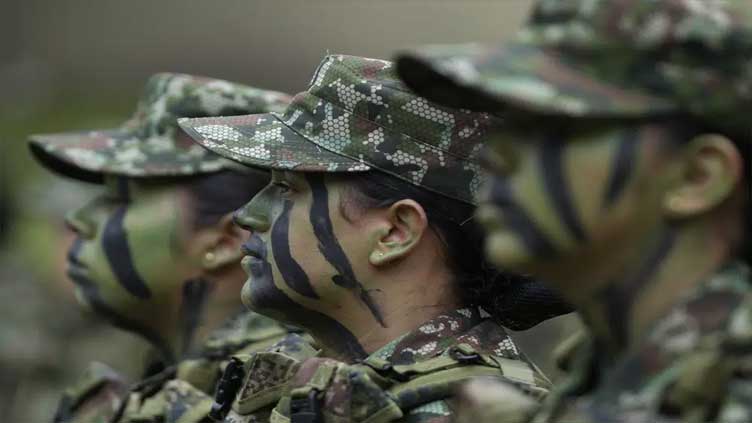Women enlist in Colombia's army for first time in 25 years

World
Women enlist in Colombia’s army for first time in 25 years
BOGOTA (AP) — Dressed in camouflage, Zulma Stefania Perez reflected on her first weeks of training at a military base in the capital — and on her life as one of Colombia’s first female recruits in more than two decades.
“The physical drills we must endure are the same” as those for men, she said. “Being women doesn’t make us less capable. In fact, there are many skills and strengths we have that men may not have.”
Perez, 24, is part of a cohort of 1,296 women who enlisted in Colombia’s army in February, when the South American country opened military service to women for the first time in 25 years.
Colombia has long had compulsory military service for men ages 18 to 24. The army relies heavily on those young recruits to staff bases, protect infrastructure and carry out administrative tasks, while its professional soldiers confront drug trafficking gangs and rebel groups.
This year, officials allowed females in the same age range to voluntary join the military, in what the army says is part of an effort to “strengthen the role of women” in its ranks.
Recruits must live on military bases for several months and earn a monthly stipend of only about $75, but some of the women in the new program hope it helps them build a career in the armed forces. They see it as a chance for a stable job and educational opportunities.
“I like the lessons we get here about human rights, and international humanitarian law, because that’s my field of expertise” said Perez, who a has a law degree but has struggled to find work in the legal profession.
She said that after her basic training she will likely get a job in the military’s judicial affairs department.
First, she must undergo three months of basic training, waking up each day at 6 a.m. and being given only one minute to take a cold shower. She has also learned to run while carrying a 3-kilogram (6 1/2-pound) rifle.
“The toughest thing has been to adapt to all of this exercise” she said. “As a civilian you live a sedentary lifestyle.”
Others said they decided to join the military because being in law enforcement runs in their families.
“Since I was small I always wanted to wear this uniform with pride, discipline and honor” said Yariany Alvarez, a 20-year-old recruit in Bogota who has a police officer uncle.
She said she was not afraid of being a soldier in Colombia, where the army is still struggling to free some rural pockets of the country from the grip of drug gangs and rebel groups.
“This is a dangerous job” she said. “But if we learn our drills and follow instructions, I think we will be able to stand out.”
Colombia’s army has around 200,000 soldiers. Around 1% are women, who until now joined after attending military universities or applying for administrative jobs.
Every year, the South American country drafts around 50,000 men into the armed forces for 12 months of compulsory military service.
It is a practice criticized by human rights activists and some politicians, who complain that most recruits are men from low income urban neighborhoods or rural areas, while wealthier Colombians who graduate from private schools find ways to avoid service.
The new push to allow females to enlist comes as Colombia’s congress debates a bill that would eliminate compulsory military service and enable young men to replace it with internships in educational programs, environmental projects or human rights initiatives.
Military officers in Colombia have opposed this legislation, saying it would diminish the army’s capabilities.

